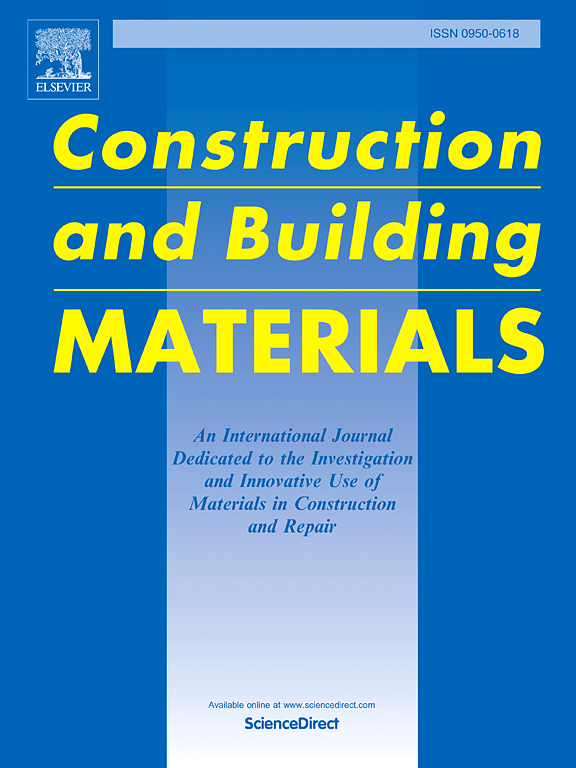Preparation and performance improvement of municipal solid waste incineration bottom ash based geopolymer modified by self-extracted CaO
IF 7.4
1区 工程技术
Q1 CONSTRUCTION & BUILDING TECHNOLOGY
引用次数: 0
Abstract
In recent years, the conversion of municipal solid waste incineration bottom ash (MSWIBA) into geopolymer has attracted much attention. However, the properties of MSWIBA based geopolymers were limited by the absence of reactivity and active calcium. In this work, a novel method of preparing MSWIBA based geopolymers by adding CaO extracted from MSWIBA was proposed. The effects of thermally treated MSWIBA (TBA700) (10–90 wt%) and self-extracted CaO (B-CaO) (0–10 wt%) on the compressive strength, micro-morphology, pore structure, and heavy metal leaching of geopolymers were investigated. The phase transformation, property, molecular structure, micro-morphology, pore structure and heavy metal content of the geopolymers were characterized and tested using X-ray Diffraction (XRD), Thermo-gravimetric Analysis (TGA), Fourier Transform Infrared Spectroscopy (FTIR), Scanning Electron Microscopy (SEM), Mercury Infiltration Porosity (MIP) and Inductively Coupled Plasma Optical Emission Spectrometer (ICP-OES). The results showed that the geopolymers prepared with the addition of B-CaO showed better properties due to the generation of more hydrate calcium silicate (C-S-H). The compressive strength of the geopolymers increased with the addition of B-CaO and TBA700. When the TBA700 content was increased to 30 %, the compressive strength of the geopolymers reached 9.21 MPa at 28 d. Furthermore, the addition of 5 % B-CaO resulted in the highest compressive strength of 23.36 MPa under the same curing conditions. All the prepared geopolymers showed the leaching concentrations of Cd, Cr, Cu, Zn, and Pb that were substantially below the regulatory limits set by GB18598–2019. Therefore, MSWIBA based geopolymers by adding its self-extracted CaO showed a promising strategy to improve the product properties and provided the foundation for the recycling of calcium-containing solid wastes into geopolymer.
求助全文
约1分钟内获得全文
求助全文
来源期刊

Construction and Building Materials
工程技术-材料科学:综合
CiteScore
13.80
自引率
21.60%
发文量
3632
审稿时长
82 days
期刊介绍:
Construction and Building Materials offers an international platform for sharing innovative and original research and development in the realm of construction and building materials, along with their practical applications in new projects and repair practices. The journal publishes a diverse array of pioneering research and application papers, detailing laboratory investigations and, to a limited extent, numerical analyses or reports on full-scale projects. Multi-part papers are discouraged.
Additionally, Construction and Building Materials features comprehensive case studies and insightful review articles that contribute to new insights in the field. Our focus is on papers related to construction materials, excluding those on structural engineering, geotechnics, and unbound highway layers. Covered materials and technologies encompass cement, concrete reinforcement, bricks and mortars, additives, corrosion technology, ceramics, timber, steel, polymers, glass fibers, recycled materials, bamboo, rammed earth, non-conventional building materials, bituminous materials, and applications in railway materials.
 求助内容:
求助内容: 应助结果提醒方式:
应助结果提醒方式:


